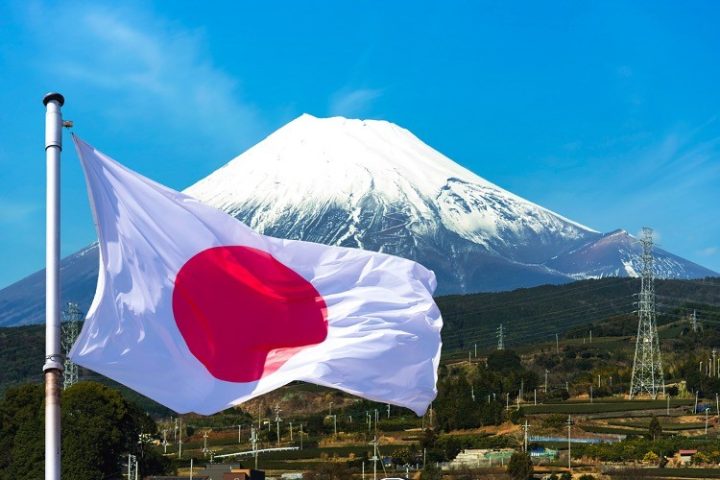
While the rest of the “civilized” world is forcing unvaccinated populations into lockdowns, throws “positive COVID cases” into “quarantine camps,” and races to inject young children with experimental gene therapeutics (aka COVID vaccines), Japan says that vaccination should be strictly voluntarily and is urging the private sector not to force the shots on workers. Moreover, the Land of the Rising Sun has departed from the dogma that “vaccines are safe,” and placed a detailed warning of potential adverse effects associated with the shots.
Shots’ Risks
According to a RAIR Foundation report, Japan is using three formulations of COVID jabs: Pfizer/BioNTech (Comirnaty), Takeda (Moderna), and Vaxzevria (formerly AstraZeneca). All three have been recently amended with a note stating, “This product contains an additive that has never been used in a vaccine before.” The government calls on people who have had “hypersensitivity or allergic reactions to drugs in the past” to consult their physician when considering a shot.
The local media reported that a concerning rate of inflammation of the heart muscle and of the outer lining of the heart in younger males has prompted Japan’s health ministry to list such conditions as possible “serious side effects” linked to the Moderna and Pfizer COVID jabs. As of mid-November, out of every one million males who were inoculated with Moderna, such side effects were reported in 81.79 males aged 10 to 19 and 48.76 males in their 20s. The figures stood at 15.66 and 13.32, respectively, for those who received the Pfizer shot.
In addition to that, the ministry now requires hospitals to report “in detail” all cases when the symptoms were developed within 28 days after inoculation, per the report. That decision comes in stark contrast to discouraging the reporting of adverse reactions to the shots in the United States (see here and here).
Also in contrast to the United States, where health authorities recommend that immunocompromised people receive not just two shots and then a booster, but also a fourth shot, Japan recommends its immunodeficient citizens or those living in close contact with immunodeficient individuals to “be careful about getting vaccinated,” per the shots’ description documents.
The list of people who should be “careful” also includes those “with underlying medical conditions such as heart, kidney, liver, blood disorders, or developmental disorders.”
No Mandates
The Japanese health ministry specifically stresses the importance of an individual’s informed consent for receiving vaccination. Even though the authorities “encourage” citizens to get vaccinated against COVID, they underline that it is not mandatory:
Although we encourage all citizens to receive the COVID-19 vaccination, it is not compulsory or mandatory. Vaccination will be given only with the consent of the person to be vaccinated after the information provided. Please get vaccinated of your own decision, understanding both the effectiveness in preventing infectious diseases and the risk of side effects. No vaccination will be given without consent.
Further, the ministry urges businesses not to force their workers to receive a shot and condemns any discrimination against the unvaxxed:
Please do not force anyone in your workplace or those around you to be vaccinated, and do not discriminate against those who have not been vaccinated.
A “Human Rights Advice” section on the Japanese Ministry of Justice’s webpage provides instructions for handling any complaints if individuals face discrimination.
Vaccinating Children Is “Ridiculous”: Study
Medical research data backs those policies, meaning the Japanese authorities are actually “following the science.”
A medical review posted in the most recent issue of Med Check (pdf) — a bimonthly bulletin published by the Japan Institute of Pharmacovigilance (NOPJIP) — at the end of October found that the death risk of the COVID shots is seven times greater for young people compared to the risks posed by COVID.
The true risk is likely higher, since the reporting system is far from perfect, said the scientists. “The bulletin noted that the number of deaths may be higher, in part because the Japanese government only requires reports of suspected vaccine injuries within 28 days of injection. The Japanese Ministry of Health, Labour and Welfare received a total of 1,308 reports of deaths after COVID vaccination by October 15,” per LifeSiteNews.
The bulletin pointed out that “It is ridiculous to consider vaccination for school children” since no COVID deaths occurred in Japan in people younger than 20 as of September 2021. There is no need for them to receive an experimental shot with a troubling safety profile. The bulletin further reads,
Even if children and adolescents and people in their 20s are infected, it is naturally mild or asymptomatic because they have less SARS-CoV-2 receptor ACE2 than adults, especially old people.
The scientists explicitly warn, “If children in this age group are vaccinated, it may cause death.”
Vaccine policies in Japan differ dramatically from those put in place in a great number of Western countries such as the United States, Canada, Australia, and numerous European Union members. The governments of those nations are largely resorting to forced vaccine mandates with little to no regard to principles of informed consent and medical freedom. In the United States, the measure is met with fierce legal opposition, and vaccine mandates issued by the Biden administration are being successfully challenged in court. The New American has covered the cases here, here, here, here, and here.
The EU, meanwhile, is urging its members to consider mandatory vaccination. Austria has already announced such a measure, and Germany is expected to follow suit.





